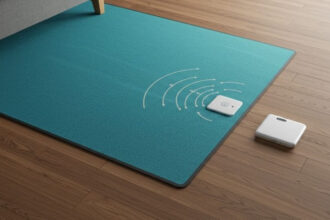The shift towards remote working has transformed how we think about our living spaces. Your home office isn’t just a place to work—it’s a powerful tool that can elevate both your property value and your daily mindset. Creating a dedicated workspace brings structure to your day and establishes clear boundaries between professional and personal life.
A well-designed home office does more than house your laptop and paperwork. It creates a psychological shift that signals productivity and focus. When you step into a purposefully designed workspace, your brain switches into work mode, helping you maintain the professional mindset that’s often challenging to achieve at the kitchen table.
Boost Your Property Value
Adding a home office can significantly increase your property’s appeal to potential buyers. Estate agents consistently report that homes with dedicated office spaces command higher prices and sell faster than those without. This investment pays dividends both while you live there and when it’s time to move on.
The key lies in creating a space that feels intentional rather than makeshift. Built-in storage, proper lighting, and quality furnishings demonstrate that the space serves a genuine purpose. Even converting a spare bedroom or creating an office nook under the stairs can add substantial value when done thoughtfully.
Mental Health and Productivity Benefits
Your environment directly impacts your mental state and productivity levels. A cluttered, poorly lit space can drain your energy before you’ve even started working. Conversely, a clean, organised office with natural light and comfortable furniture can boost your mood and motivation.
Research shows that people working in well-designed spaces report higher job satisfaction and lower stress levels. Having a dedicated area for work also helps maintain work-life balance—you can physically “leave” work at the end of the day by stepping out of your office space.
Essential Elements for Success
Lighting Makes All the Difference
Natural light should be your first priority when choosing your office location. Position your desk near a window if possible, but avoid placing your computer screen directly opposite a window to prevent glare. Supplement natural light with task lighting—a good desk lamp can reduce eye strain during long working sessions.
Storage Solutions That Work
Clutter kills productivity. Invest in storage solutions that keep your workspace tidy and your mind clear. Filing cabinets, floating shelves, and desk organisers help maintain order. The goal is to have a place for everything and keep everything in its place.
The Foundation of Comfort: Your Desk Chair
Your desk chair deserves special attention as it directly impacts your health, comfort, and productivity. Many people underestimate how much a quality chair affects their working day until they experience the difference proper support makes.
Ergonomic office chairs are designed to support your body’s natural posture throughout long working sessions. They reduce strain on your back, neck, and shoulders, common problem areas for desk workers. Poor seating can lead to chronic pain, fatigue, and decreased concentration.
When selecting a desk chair, look for adjustable height, lumbar support, and armrests that can be positioned correctly for your body. The chair should allow your feet to rest flat on the floor with your thighs parallel to the ground. Your arms should rest comfortably on the armrests without hunching your shoulders.
Quality ergonomic office chairs might seem expensive initially, but they’re an investment in your long-term health and daily comfort. Consider that you’ll likely spend several hours each day in this chair—the cost per hour of use over several years makes even premium options surprisingly affordable.
Technology and Connectivity
Ensure your office has reliable internet connectivity and sufficient power outlets for your equipment. Consider your technology needs: multiple monitors, printers, charging stations for devices. Plan your layout around these requirements rather than trying to make do with extension leads and poor Wi-Fi signals.
Cable management might seem trivial, but tangled wires create visual chaos that can be mentally draining. Simple solutions like cable trays or cord organisers can make your space feel more professional and easier to clean.
Personal Touches That Inspire
While functionality comes first, don’t forget to add personal elements that inspire and motivate you. This might be artwork, plants, or meaningful objects that spark creativity. Plants, in particular, can improve air quality and add life to your space.
Keep personal items minimal but meaningful. A few carefully chosen pieces create a more pleasant environment without becoming distracting.
Making It Work for Your Space
Not everyone has a spare room to convert into an office. Small spaces can work just as well with clever planning. A corner of your bedroom, a section of your living room, or even a well-organised cupboard can become an effective workspace.
The key is creating clear boundaries. Use furniture placement, lighting, or even a room divider to separate your work area from the rest of your living space. This psychological separation is crucial for maintaining focus during work hours and relaxing during personal time.
Your Next Steps to Success
Creating an effective home office is one of the best investments you can make in your property and your wellbeing. Start by assessing your current setup and identifying what’s not working. Focus on the fundamentals: good lighting, proper storage, and a comfortable, supportive desk chair.
Remember that your office space should evolve with your needs. What works for you now might need adjustment as your work patterns change. The goal is creating a space that supports your success and makes you feel energised and focused every time you sit down to work.
Your home office represents more than just a workspace—it’s your gateway to professional success and personal satisfaction. Invest in creating a space that truly works for you, and you’ll see the benefits in every aspect of your working life.

















